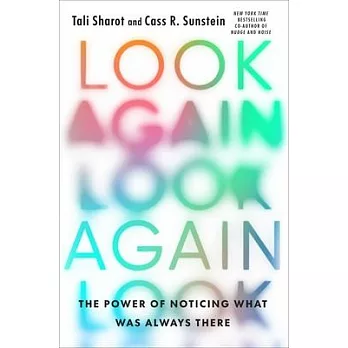本書將帶您走出舒適圈,提供最佳路線圖。
日復一日習以為常的生活模式,使人在不知不覺中鈍化,對周遭的事物視而不見,適應了生活中的好與壞,卻失去熱情……想為灰暗而乏味的生活重新上色嗎?這本書將陪伴讀者做出改變,為自己的生命,重新注入活力!
國際知名認知心理學家,奠基於心理學和生物學數十年來的研究成果,提供讀者走出舒適圈的最佳路線圖,協助我們「破除慣例」。無論是暫時離開熟悉的環境、改變行事的規則、改變周遭互動的對象,都可為麻木的生活帶來新鮮感,幫助我們恢復感知覺察的能力,使我們的心,變得清明,重新看見生活中始終存在、卻往往被忽視的美好事物。
書中提供源源不絕的靈感與行動方案,現在就閱讀這本書吧!做出改變,每一天將變得更快樂、更有意義。(文/博客來編譯)
This "smart and fun read, and a valuable way to revitalize your life" (Walter Isaacson) deftly explains how disrupting our well-worn routines, both good and bad, can rejuvenate and reset our brains for the better.
Have you ever noticed that what is exciting on Monday tends to become boring on Friday? Even passionate relationships, stimulating jobs, and breathtaking works of art lose their sparkle after a while. As easy as it is to stop noticing what is most wonderful in our lives, it’s also possible to stop noticing what is terrible. People get used to dirty air. They become unconcerned by their own misconduct, blind to inequality, and are more liable to believe misinformation than ever before. Now, neuroscience professor Tali Sharot and Harvard law professor (and presidential advisor) Cass R. Sunstein investigate why we stop noticing both the great and not-so-great things around us and how to "dishabituate" at the office, in the bedroom, at the store, on social media, and in the voting booth. This groundbreaking and "sensational guide to a more psychological rich life" (Angela Duckworth, New York Times bestselling author), based on decades of research, illuminates how we can reignite the sparks of joy, innovate, and recognize where improvements urgently need to be made. The key to this disruption--to seeing, feeling, and noticing again--is change. By temporarily changing your environment, changing the rules, changing the people you interact with--or even just stepping back and imagining change--you regain sensitivity, allowing you to identify more clearly the bad and more deeply appreciate the good.


 天天爆殺
天天爆殺  今日66折
今日66折 


























 博客來
博客來 博客來
博客來 博客來
博客來 博客來
博客來 博客來
博客來